Researchers in the Basque Country. Round table
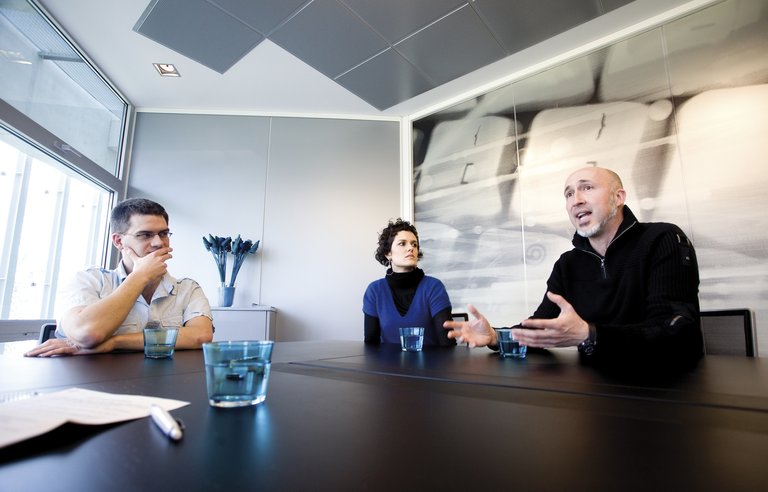
Felix Elortza: I don't know if it's a race of obstacles, but of marathon. And it is vocational. By making the same effort in any other job, you see performance in a much shorter time frame. I earned 100,000 pesetas. Therefore, five years to finish the race, another four if you go well and, once obtained the title of doctor, everything starts again: that is why it is the marathon race. Obstacles? I think that today anywhere, being young and inexperienced, is not easy, but research is a profession that has to make a great effort in the same direction.
Naiara Roofs: Yes, I agree.
Urtzi Ayesta: I would say that what seeks short-term comfort cannot be devoted to research. If we compare the life of a researcher with the life of another person, any other person can have a fixed job at the age of 25-26, and until the age of 30 does not get a researcher, and the precariousness is increasing. It is increasingly difficult to get a fixed job both at European and international levels. Therefore, a true vocation is needed. You have to like it and then you don't think too much in economic conditions. But you are happy. (Smile)
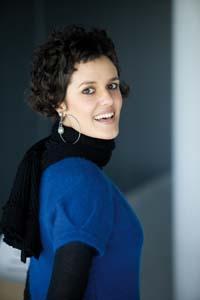
U. Ayesta: In my case it is like this: I have lived in a couple of countries. As there is so much competition, if in the end you want to get a fixed job, that forces you to make in your life the following approach: "At the moment I like this and I am willing to everything, because this makes me happy". On the one hand it is a sacrifice, on the other it is a vital experience. But being a nomadic is common today for many.
N. The research focuses on the subject of Tejados Bizitza.
F. Elortza: Yes, and that nomadism is not equal to 26 or 36 years. Traveling at age 26 can have its charm, but life has its phases and you can not always carry books in boxes. It is also time to fix. And in that sense, the Basques are to some extent like Iparragirre: we walk well everywhere, but then we also want to return.
U. Ayesta: Exporters are mainly economically undeveloped countries. India and China are the countries of the world that most young researchers export.
F. Elortza: In Europe, until the early 1990s, in Portugal, Spain and Italy numerous scholarships were offered for doctoral theses, but then the research system was not prepared to receive those well-trained people, there were not enough scientific careers and research centers. Since then things have changed, perhaps not enough. In the past there was a greater flow to more advanced European countries and the United States.
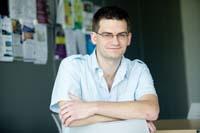
U. Ayesta: And it continues to happen: there are many more Spanish researchers who study doctorates in France than French researchers who are doing their doctorate in Spain.
N. Roofs: I believe that it depends on the will of each one, their willingness to move and travel. Not everything is possible, much less in science. In a few cases it may be possible, but not in most cases.
F. Elortza: Reality is always relative: with what you compare, it will seem better or worse. When I finished the race, here in the field of biotechnology there was hardly anything. Currently there are spin-offs coming from the university and technology parks, as well as private companies working in the field of biotechnology, one of them with more than one hundred employees. That was fifteen years ago unthinkable. And we'll have to see how we're going to be within ten years. However, student attitudes have also changed. Now there are fewer students and, in general, I think they give more importance to the quality of life than we provided.
U. Ayesta: As I think, I think it is a great coincidence or coincidence that I work now. I was clear about the only thing I didn't want: I didn't want to finish the race and start working. There is no research tradition here and I did not know what research was. And what to investigate, much less so. Then, there begins a path: you put yourself at the door, and where you touch the door, the doctorate will do it in one field or another, and then you will continue there.
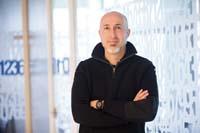
N. Roofs: The medical applications that my research area has are very correct and my motivation is from there. Research has to be vocational; otherwise, with the amount of frustration that appears along the way there is no one who suffers it. You have to be very clear that what you do you like and want to keep doing it.
U. Ayesta: For me the biggest advantage is that I get paid to study and I like to study. And for that I have total freedom: on schedule, how to plan... The joy of life that gives me is enormous.
F. Elortza: Being a researcher allows you to discover new things. Often they won't be great discoveries, but the fact that you've discovered some things for the first time thrills you. Moreover, science has a unifier: discoveries know no boundaries. No matter where you are from, what skin color or what I believe you are a follower: the experiment, the formula or whatever will have to work the same for everyone, and anyone can contrast it. If the result is true, it is advanced and consolidated, otherwise it is left behind and forgotten. And in relation to this idea, the scientific community is diverse in many aspects and it is enriching to meet people different from yours.
F. Elortza: Things are changing little by little. We come from another tradition in which disclosure is important for people to become aware of what we do.
N. Roofs: Yes, but it's not easy to tell someone who doesn't belong to your area in an understandable way.
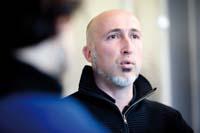
U. Ayesta: (Smiling) Difficult questions.
U. Ayesta: To a certain extent yes, but not always: there is still freedom to carry out their own projects.
F. Elortza: Sure, where to put the limit? When Watson and Crick discovered the structure of DNA, some would say: "And for what?" And think what came next: a thousand applications. But, on the other hand, it is also understandable the need to resort to applied research to some extent, since the money earmarked for research is often put by society.
U. Ayesta: Examples of research that seemed to have no practical application but then had incredible applications are endless, such as laser or gigantic magnetoresistance.
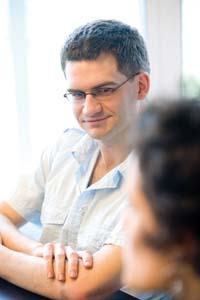
U. Ayesta and F. Elortza: Total.
F. Elortza: If you are in a giant transnational private enterprise, for example, there are two big differences. On the one hand, they will tell you what you are going to work on and what you research will become a project or a patent for them. But what you take to your pocket at the end of the month is not the same: you will earn much more. In the public, however, there is greater flexibility, although it is increasingly destined to possible applications.
U. Ayesta: But there are also private companies that have done academic research, such as IBM. Microsoft currently has laboratories like the USA. o England where people are totally free, investigate what they want. Also on Google. But they are exceptions.
U. Ayesta: I don't complain. Perhaps I am one of the privileged, because I found a fixed work of researcher quite fast --28 years -. But it is true that it is increasingly difficult to achieve it. Thanks to live independent research for a long time; not too much to keep me in the bank, but I have enough money to live. In any case, the need for money arises later to researchers when they want to build projects: housing, etc.
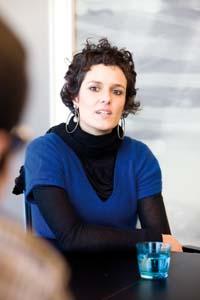
N. Roofs: Because if you want to have a lot of money in the bank, you better not choose research.
F. Elortza: At our time, to carry out the thesis they must have spent four years with an unlisted scholarship. In the case of obtaining the postdoctoral degree, we also had to spend other years as an intern. Therefore, there were people unlisted at the age of 40. Now it seems that things are improving little by little.
U. Ayesta: In any case, I think the conditions are getting worse. A few years ago it was possible to do the doctorate and find work, but today to find work in Europe a postdoctoral stay abroad is essential. And everyone has to, even if their life is here or family.
F. Elortza: More and more is required.
U. Ayesta: Previously it was possible to get a fixed job without moving from the university and being a professor. Today, geographical mobility has become an essential requirement. And that's very hard. But we accept it.
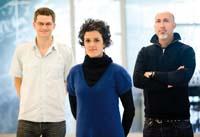
The three together: Yes.
F. Elortza: It's about having some clear things. There are advantages and drawbacks, but I think the final balance is positive.
U. Ayesta: Freedom is priceless.
Buletina
Bidali zure helbide elektronikoa eta jaso asteroko buletina zure sarrera-ontzian








